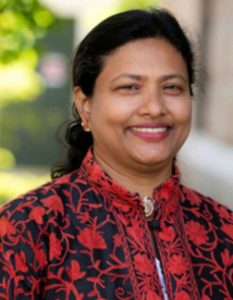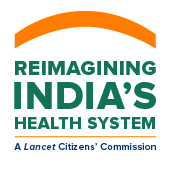In Conversation: Preethi John , Associate Professor and Deputy Director, UCL Global Business School for Health; Faculty of Population Health Sciences, UCL, London, UK
July 13, 2022

My postgraduation in TISS provided a wide exposure of experiences to the different facets of the health system in India. From my PG thesis on children who attempted suicide following the announcement of 10th results in Kerala; to my block placement in rural Maharashtra with the Institute of Health Management Pachod (IHMP); field work opportunities in a government orphanage of children with mental health issues as well as working in a de-addiction centre with women substance users as well as children of alcoholics provided a ringside view of challenges and issues in the health system at different levels whether in community – rural or urban to issues from the primary to secondary to tertiary level. I started my career with IHMP as they were establishing an urban office in Pune and developing a model to provide healthcare to the urban slum population. At the same time, IHMP was scaling up the model of rural healthcare provided by IHMP in villages of Maharashtra. From there a brief stint to work on a research project among HIV affected population while based in Surat Medical College in the PSM department. Then I shifted to South India to the Aravind Eye Care System (AECS) a WHO Collaborating Centre. The long stint of 12 years plus at AECS enabled me to gain expertise in capacity building of diverse healthcare human resources from developing countries across South Asia, Africa, and Latin America. It also strengthened my strategic planning expertise. Moving onto North India to address the shortage of qualified healthcare workforce via an opportunity to pilot a model for the development of allied health professionals and establish the Chitkara School of Health Sciences as its Founder Dean. After ten years with Chitkara University in Punjab, and launching a Women in Global Health India Chapter, I received the Harvard LEAD Fellowship; the only Asian recipient in the 2021 cohort to do so. Currently, I am an Associate Professor and Deputy Director of MBA Health at Global Business School for Health, University College London as well as a Visiting Scientist at Harvard School of Public Health.
The opportunity to work particularly on Human Resources in Health workstream in this commission is an amazing opportunity. While much has been done there is so much to be done which is possible through this Commission to get the priority HRH deserves. My role as a Commissioner in the HRH workstream is to mentor the Evidence Synthesis team in the HRH workforce where a scoping review is being undertaken to assess the evidence that exists in India in this area. I am also part of the HRH task force which works closely with the Catalyst team which is leading the effort to apply the TOC framework. Through this exercise the HRH taskforce has been working to distil the paradigm shifts in HRH as well as interventions required. All of this will form part of the HRH section of the report. My expertise and experiences in healthcare human resources capacity building and strategic planning are key to health systems development and innovation.
India produces some of the finest healthcare professionals for the global community yet what we produce is not enough nor equitably distributed or skilled to benefit India’s healthcare system. While technology and digital health have made their foray into healthcare it continues to be a laggard to benefit human resources for health. There are huge variations between the public and private healthcare systems including in healthcare education. Accreditation systems, standardisation of healthcare and its education are still evolving. While healthcare is a team effort education of healthcare professionals takes place in silos. The dissonance between different healthcare professionals and the lack of a space where multidisciplinary healthcare professionals come together and decide a what is feasible model at the local level yet identify good practices that can be scaled up is missing. The Commissions which have been formed like the National Medical Commission; THE NATIONAL COMMISSION FOR ALLIED AND HEALTHCARE PROFESSIONS ACT, 2021 have much work to be done and this needs to provide budgetary and implementation priority. Overall healthcare priorities need to be provided the urgent attention it requires especially in terms of resource provision and appropriate policies.
The impact should be a reimagined health system which places the community as key stakeholders to design and ensure continuous improvements the system for better preventive and promotive measures as well as community-based healthcare particularly in the realm of rehabilitative and palliative care to take place. This opportunity to transform HRH must supplement and complement other efforts to achieve UHC. Central to all of this would be HR Training, Capacity Building, Mentoring, designing for Sustainability leveraging appropriate financing models as well as technology as key to HEALTH SYSTEMS stability, growth, and achievement of UHC goals. At the end of this exercise have a better idea of who are the HRH, their role and how they coordinate with each other and most importantly who are the HRH teams required at different levels to achieve UHC. It should also amplify the voice of the 75 percent of the women healthcare workforce giving greater recognition as well as facilitating an ecosystem to allow for their career continuity and career progression. It should provide a stimulus to reignite the efforts and allow further models to come up at the local level. India with its rich history and contribution to healthcare must realign its resources to ready the HRH to meet the needs of the future.
